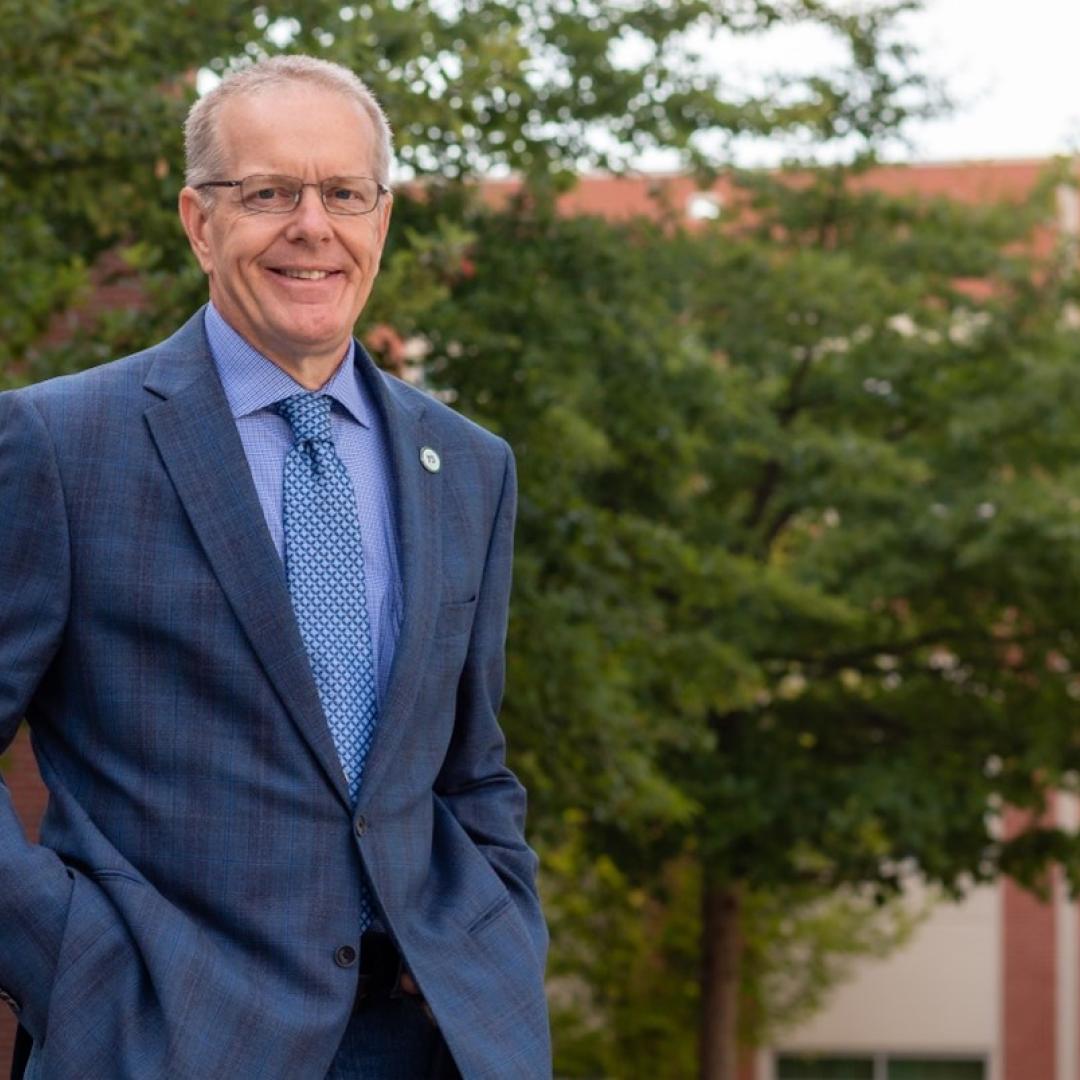
Filter News
Area of Research
News Topics
- (-) Big Data (23)
- (-) National Security (35)
- 3-D Printing/Advanced Manufacturing (39)
- Advanced Reactors (8)
- Artificial Intelligence (46)
- Bioenergy (51)
- Biology (59)
- Biomedical (28)
- Biotechnology (11)
- Buildings (19)
- Chemical Sciences (24)
- Clean Water (14)
- Climate Change (49)
- Composites (6)
- Computer Science (82)
- Coronavirus (17)
- Critical Materials (2)
- Cybersecurity (14)
- Decarbonization (46)
- Education (1)
- Emergency (2)
- Energy Storage (29)
- Environment (103)
- Exascale Computing (25)
- Fossil Energy (4)
- Frontier (24)
- Fusion (30)
- Grid (23)
- High-Performance Computing (43)
- Hydropower (5)
- Isotopes (27)
- ITER (2)
- Machine Learning (22)
- Materials (43)
- Materials Science (45)
- Mathematics (6)
- Mercury (7)
- Microelectronics (2)
- Microscopy (20)
- Molten Salt (1)
- Nanotechnology (16)
- Net Zero (8)
- Neutron Science (47)
- Nuclear Energy (54)
- Partnerships (16)
- Physics (28)
- Polymers (8)
- Quantum Computing (20)
- Quantum Science (30)
- Renewable Energy (1)
- Security (11)
- Simulation (30)
- Software (1)
- Space Exploration (12)
- Statistics (1)
- Summit (30)
- Sustainable Energy (44)
- Transformational Challenge Reactor (3)
- Transportation (27)
Media Contacts
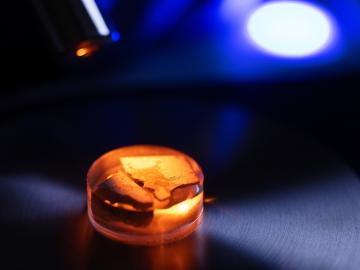
Despite strong regulations and robust international safeguards, authorities routinely interdict nuclear materials outside of regulatory control. Researchers at ORNL are exploring a new method that would give authorities the ability to analyze intercepted nuclear material and determine where it originated.
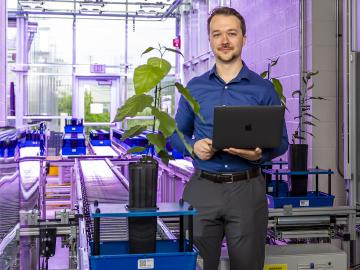
John Lagergren, a staff scientist in Oak Ridge National Laboratory’s Plant Systems Biology group, is using his expertise in applied math and machine learning to develop neural networks to quickly analyze the vast amounts of data on plant traits amassed at ORNL’s Advanced Plant Phenotyping Laboratory.
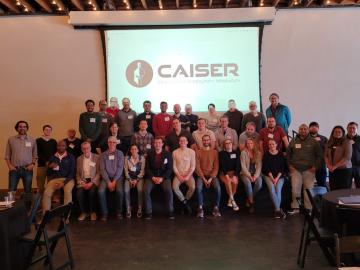
Researchers at the Department of Energy’s Oak Ridge National Laboratory met recently at an AI Summit to better understand threats surrounding artificial intelligence. The event was part of ORNL’s mission to shape the future of safe and secure AI systems charged with our nation’s most precious data.
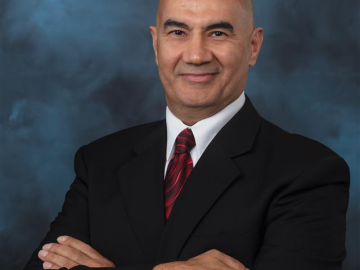
Mohamad Zineddin hopes to establish an interdisciplinary center of excellence for nuclear security at ORNL, combining critical infrastructure assessment and protection, risk mitigation, leadership in nuclear security, education and training, nuclear security culture and resilience strategies and techniques.
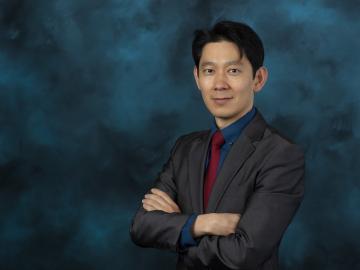
Researchers at ORNL are using a machine-learning model to answer ‘what if’ questions stemming from major events that impact large numbers of people. By simulating an event, such as extreme weather, researchers can see how people might respond to adverse situations, and those outcomes can be used to improve emergency planning.

To balance personal safety and research innovation, researchers at ORNL are employing a mathematical technique known as differential privacy to provide data privacy guarantees.
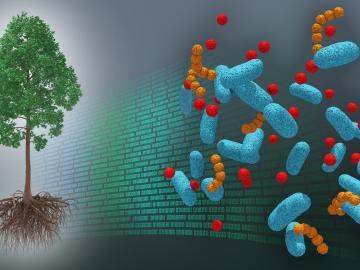
A first-ever dataset bridging molecular information about the poplar tree microbiome to ecosystem-level processes has been released by a team of DOE scientists led by ORNL. The project aims to inform research regarding how natural systems function, their vulnerability to a changing climate and ultimately how plants might be engineered for better performance as sources of bioenergy and natural carbon storage.
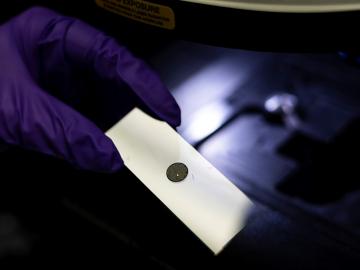
Nuclear nonproliferation scientists at ORNL have published the Compendium of Uranium Raman and Infrared Experimental Spectra, a public database and analysis of structure-spectral relationships for uranium minerals. This first-of-its-kind dataset and corresponding analysis fill a key gap in the existing body of knowledge for mineralogists and actinide scientists.
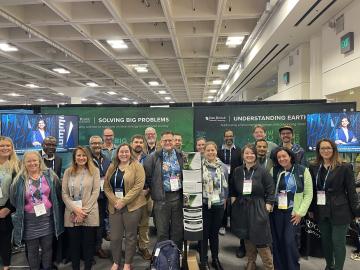
ORNL scientists and researchers attended the annual American Geophysical Union meeting and came away inspired for the year ahead in geospatial, earth and climate science.

In summer 2023, ORNL's Prasanna Balaprakash was invited to speak at a roundtable discussion focused on the importance of academic artificial intelligence research and development hosted by the White House Office of Science and Technology Policy and the U.S. National Science Foundation.


